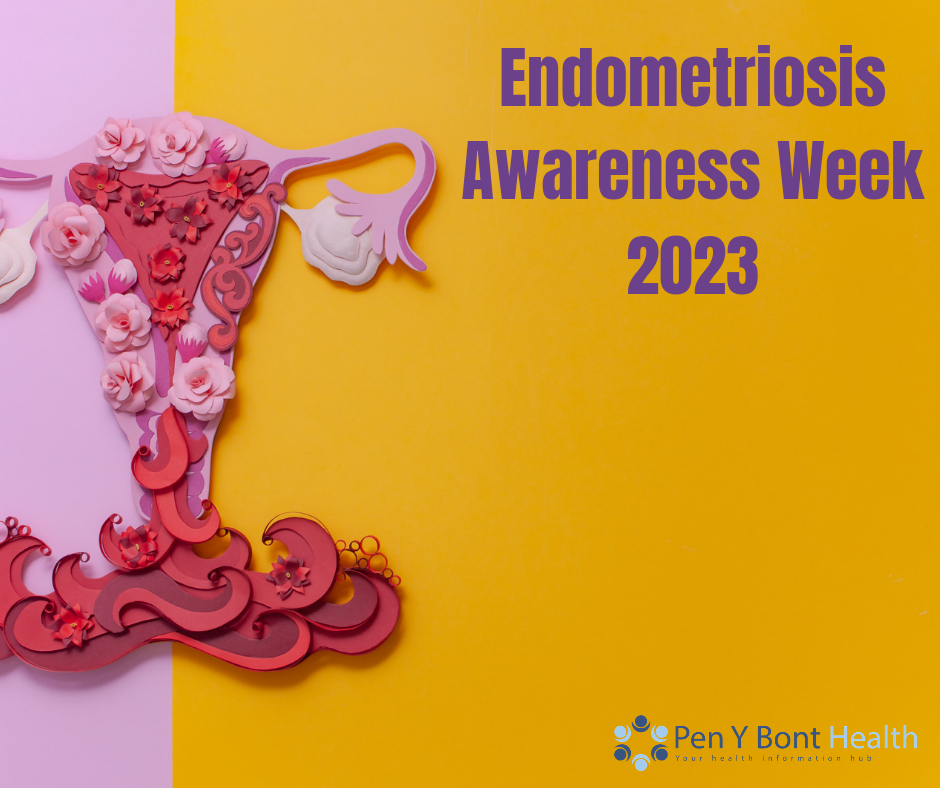What is it?
Endometriosis is the name given to the condition where cells similar to the ones in the lining of the womb are found elsewhere in the body, such as the ovaries and fallopian tubes.
It is a very common condition, affecting around 1 in 10 women, and in the UK, around 1.5 million women and those assigned female at birth are currently living with the condition.
Endometriosis usually affects women during their reproductive years. It can be a long-term condition that can have a significant impact on your general physical health, emotional wellbeing and daily routine.

What causes endometriosis?
The exact cause of endometriosis is not known but it is hormone dependent.
Endometriosis may be found:
- on the ovaries, where it can form cysts
- in the peritoneum (the lining of the pelvis and abdomen)
- in or on the fallopian tubes
- on, behind or around the womb
- in the area between the vagina and the rectum.
Endometriosis can also occur within the muscle wall of the womb (adenomyosis) and occasionally on the bowel and/or bladder. It may sometimes be found in other parts of the body, but this is rare.
What are the symptoms?
Endometriosis can cause pain that occurs in a regular pattern, becoming worse before and during your period. Some women experience pain all the time but for others it may come and go. The pain may get better during pregnancy and sometimes it may disappear without any treatment.
It’s important to note that you may not experience any symptoms.
Pelvic pain is the most common symptom of endometriosis. You may also have the following symptoms:
- painful periods
- cramps 1 or 2 weeks around menstruation
- heavy menstrual bleeding or bleeding between periods
- infertility
- pain during sexual intercourse
- discomfort with bowel movements
- lower back pain that may occur at any time during your menstrual cycle
Each person’s experience with endometriosis is different. Having severe pain or other symptoms is not necessarily a sign of more severe endometriosis.
When should I see a GP?
Endometriosis can have a significant impact on a person’s life in a number of ways, including:
- Chronic pain
- Fatigue/lack of energy
- Depression/isolation
- Problems with a couple’s sex life/relationships
- An inability to conceive
- Difficulty in fulfilling work and social commitments
However, with the right endometriosis treatment, most of these issues can be tackled, and the symptoms made more manageable.
It can be difficult to diagnose endometriosis because the symptoms can vary considerably, and many other conditions can cause similar symptoms.
A GP will ask about your symptoms and may ask to examine your tummy and vagina. They may recommend treatments if they think you have endometriosis.
If these do not help, they might refer you to a specialist called a gynaecologist for some further tests, such as an ultrasound scan, MRI or laparoscopy.
Treatment
Currently, there is no cure for endometriosis. However, there are treatments that can ease the symptoms.
The type of treatment you receive for your endometriosis should be decided between you and your healthcare professional. Your healthcare professional will consider many different factors when working out the best treatment method for you, such as your age, the severity of endometriosis you have and the severity of your symptoms.
Endometriosis can be a difficult condition to deal with, both physically and emotionally.
As well as support from your doctor, you may find it helpful to contact a support group, such as Endometriosis UK, for information and advice.
